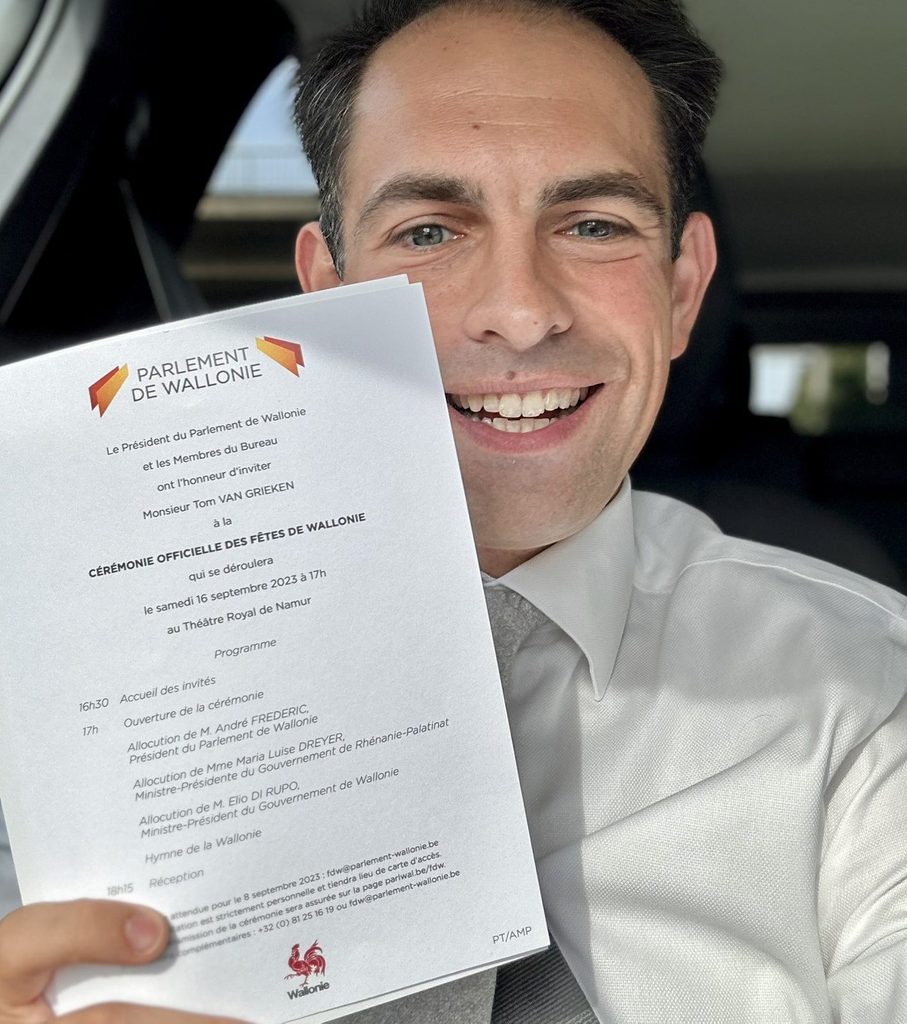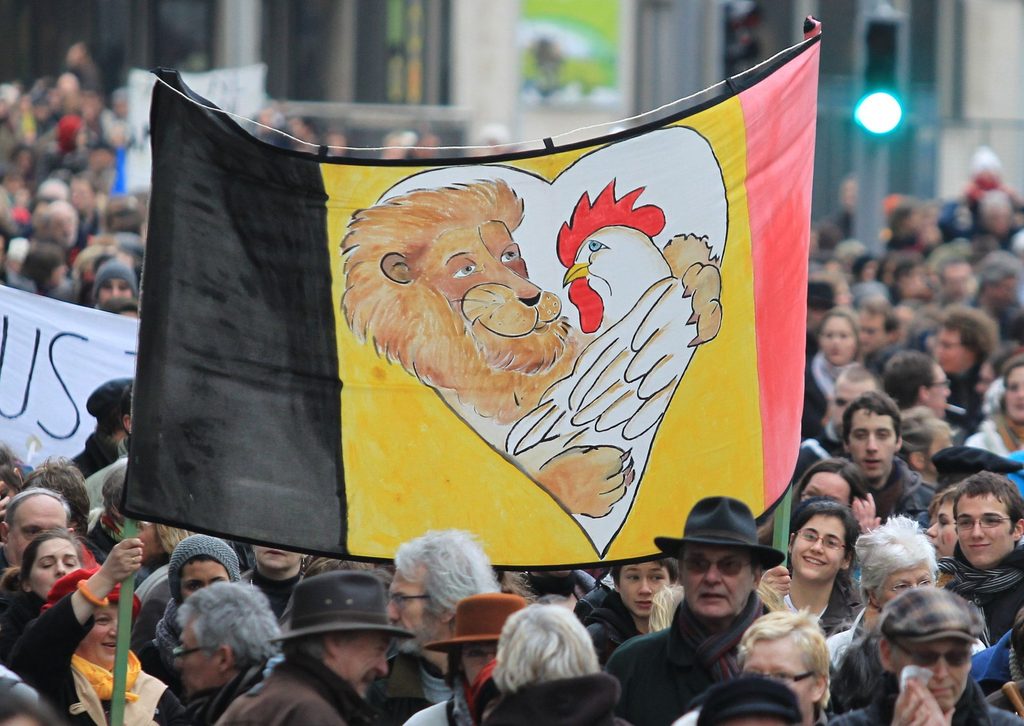Leader of the far-right Flemish party Vlaams Belang Tom Van Grieken ruffled Walloon feathers this weekend after revealing he was invited to the region's official festivities in Namur.
"En route to the official Walloon Day ceremony. Even when Flanders is independent, we will have to maintain good relations with our Walloon neighbours. Thank you for the invitation!" he said on social media, having attached a photo of his letter from the President of the Walloon Parliament, Andre Frederic.
When contacted by RTBF, Andre Frederic told reporters that it was customary to invite the Vice-President of the Federal Parliament: “He is vice-president and, as such, all the offices of the assemblies are invited."
Dissenting voices
Leader of the Socialist Party (PS) and Mayor of Charleroi, Paul Magnette, was among the leading critics. "I was amazed that Tom Van Grieken was invited. The far-right should not be invited."
Francois De Smet, leader of DéFI, called it “shocking and incomprehensible”, provoking a response from the Vlaams Belang leader.
"Do you then propose that the Walloon Parliament refuses a representative of the entire Chamber of Representatives? Seems like an interesting precedent to me, also for the future of Belgium. Wallonia getting rid of its federal representatives," Van Grieken responded on social media.

Van Grieken shows off his letter. Credit: Twitter / X
Anti-fascist critiques
With a few unsuccessful attempts over the years, Wallonia remains one of the only regions in Europe with no far-right party.
Across Belgian politics, a cordon sanitaire has been implemented around the far-right – essentially a no-engagement policy, which means no party will ever govern alongside Vlaams Belang. It has been in place since the late 1980s when they were known as Vlaams Blok, before a racism conviction pushed them to subsequently rebrand as Vlaams Belang.
As an unwritten rule, the cordon has been called into question in Flanders, but also by the leader of MR, George Louis Bouchez, who was heavily criticised after accepting a debate with Vlaams Belang in 2022, which critics say contributes to the normalisation of far-right politics.
With Vlaams Belang continuing to top the polls in the northern region of the country, the question around the cordon sanitaire remains pertinent. After the 2024 elections, Vlaams Belang seek to declare unilateral independence in the Flemish Parliament and a Czechoslovakia-style divorce settlement with Wallonia. They would also make Brussels a Flemish city, but keep it bilingual.
Related News
- ‘Is our democracy in danger?’: Belgian political leaders clash in debate over country's future
- De Wever attack on Vlaams Belang shows divide among Flemish separatists
- Georges-Louis Bouchez slammed for debate with far-right Vlaams Belang
The incident has overshadowed Wallonia's festivities. When speaking to RTBF, President Andre Frederic was keen to underline the day's success, adding that he was delighted by how Wallonia was being honoured. The Day of the Walloon Region celebrates the contribution of Walloons during the revolutionary days of September 1830, when Belgium was officially formed.
For the President of the Walloon Parliament, the real question to ask on Van Grieken is: "How is it that so many people vote for the far-right in Flanders," while adding that it gives weight to Vlaams Belang and allows them to obtain a vice-president role in the House.

